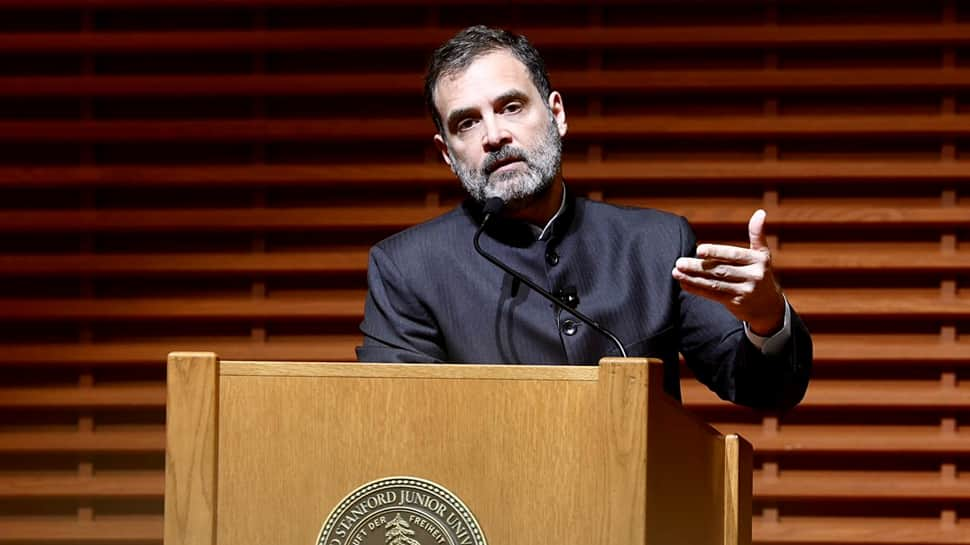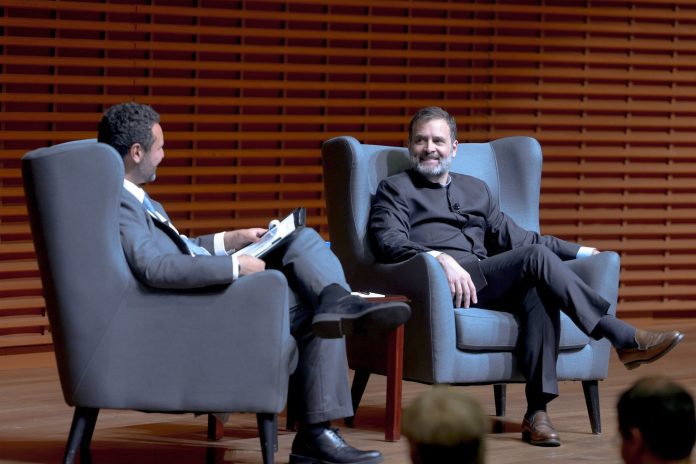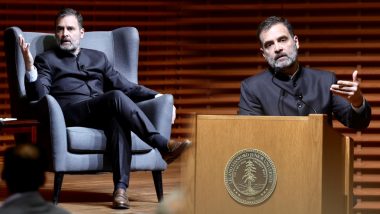Washington: Rahul Gandhi, a prominent leader of the Indian National Congress, has extended support to the Indian government’s stance on the ongoing Russian-Ukrainian conflict. He emphasized the failure of the democratic world to counter China’s non-democratic vision and called for a new system of production and manufacturing where India and the United States can collaborate. Gandhi clarified that his international engagements are not aimed at seeking support for internal political battles in India, countering criticism from the Bharatiya Janata Party (BJP).
During an interaction at Stanford University, Gandhi expressed unequivocal support for India’s position on the Ukraine war. He acknowledged the historical relationship and dependencies between India and Russia, stating that his stance aligns with the Indian government’s approach. He emphasized the need for India to safeguard its interests while maintaining diplomatic relationships. Gandhi acknowledged that India, due to its size and geopolitical position, will have varying degrees of relations with different countries, making it challenging to sever ties with specific nations.
Rahul Gandhi Advocates for Collaborative Production and Manufacturing System Between India and the US
Gandhi is currently on a six-day visit to the United States, engaging with think tanks, the Indian diaspora, and the media in various cities. Reflecting on his political journey, he expressed surprise at his disqualification from Parliament but noted that it has provided him with a significant political opportunity, even greater than what he would have had within the legislative body.
Responding to questions about seeking support from outside the country, Gandhi emphasized that his fight is solely India’s fight, but he expressed a desire to connect with young Indian students studying abroad. He highlighted the importance of engaging with the youth and learning from their perspectives. Gandhi questioned why the Indian Prime Minister does not visit such gatherings to interact with students directly. He emphasized the value of political leaders subjecting themselves to questioning and learning, even if occasional mistakes or the inability to answer every question are part of the process.
Addressing the competition between the United States and China, Gandhi discussed China’s Belt and Road Initiative (BRI), which presents a non-democratic vision of the world. However, he argued that there is a lack of a clear democratic vision on the other side. Gandhi pondered how democracies can compete with China’s robust production capabilities and emphasized the need for a democratic system of production. He highlighted the potential for collaboration between India and the United States, leveraging each other’s strengths to develop such a system.
Rahul Upholds Resolute Support to India’s Firm Stance on Ukraine Issue in the US

Regarding the India-China relationship, Gandhi acknowledged the tensions and territorial disputes between the two countries. He affirmed India’s resolve not to be pushed around while acknowledging the complexities and challenges of the relationship.
Gandhi also spoke about the struggles democracies face with wealth concentration, growing inequality, and the inability of political systems to keep pace with technological advancements and social media. He highlighted the lag between political systems and technological progress, noting that democracies need time to adapt. Gandhi expressed concern over social media’s impact, creating information asymmetry and segregating people into echo chambers, which ultimately reduces meaningful conversation.
During his visit to Silicon Valley, Gandhi visited Plug and Play, a tech incubator housing numerous startups across various industries. He participated in a fireside chat, discussing the importance of decentralized technology ecosystems, regulatory challenges with drones, and the need for data safety and privacy policies. Gandhi also alluded to the Pegasus spyware controversy, claiming his phone was being tapped and humorously addressing the Indian Prime Minister, Narendra Modi, in reference to the alleged surveillance.
By addressing key international issues and promoting collaboration between India and the United States, Rahul Gandhi seeks to contribute to the development of a more equitable and democratic world.
Rahul Gandhi, the prominent leader of the Indian National Congress, recently made significant statements during his visit to the United States. One of the key issues he addressed was the Russian-Ukrainian conflict, where he extended his support to the Indian government’s stance. Gandhi emphasized the importance of considering India’s existing relationship with Russia and the dependencies between the two countries. He stated that his position aligns closely with the government’s approach, as India needs to safeguard its interests while maintaining diplomatic relations.
During an interaction at Stanford University, Gandhi expressed his concerns about the failure of the democratic world to counter China’s non-democratic vision. He acknowledged the magnitude of China’s Belt and Road Initiative (BRI) and its promise of prosperity, but pointed out the absence of a clear democratic vision in response. Gandhi questioned how democracies can effectively compete with China’s robust production capabilities and emphasized the need for a democratic system of production.
In this context, Gandhi called for a new system of production and manufacturing where India and the United States can collaborate and leverage each other’s strengths. He highlighted the potential for synergy between the two countries and emphasized the significance of working together to develop an alternative model that aligns with democratic values.

